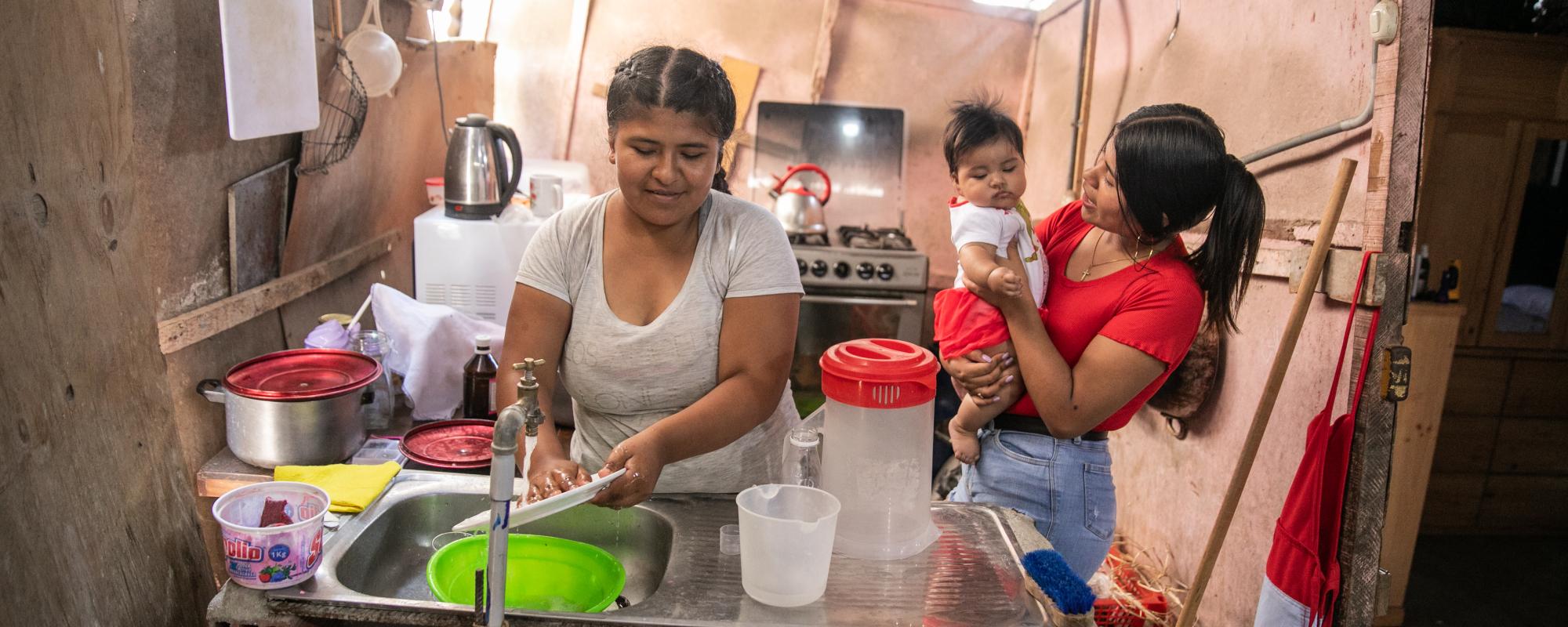
Breadcrumb
- Home
- Improving children’s health and education in Peru through social protection (JUNTOS programme)
Young Lives longitudinal evidence has directly informed the re-design and expansion of the JUNTOS conditional cash transfer programme, delivering better access to health and education for disadvantaged pregnant women, children and adolescents.
Young Lives evidence shows that children from households that receive support from JUNTOS are less likely to experience chronic malnutrition and that nutritional benefits are greater for children receiving support from an early age.
Our latest ground-breaking evidence shows that children who receive JUNTOS support from an early age also show significant gains in their foundational cognitive skills, including the ability to focus on a specific task (‘inhibitory control’) A key factor behind this impact appears to be that children who benefit from JUNTOS support at an early age are more likely to start primary school at the right age.
According to government figures from 2022, JUNTOS provides direct support to 703,222 households in 1,840 out of 1,890 districts in Peru , reaching over one and a half million pregnant women, children and adolescents in poor and marginalised households.
Our analysis suggests that social protection programmes like JUNTOS offer huge potential to help address inequalities in foundational cognitive skills. Support from such programmes can mitigate the negative effects of early poverty and climate shocks for the most disadvantaged children, with opportunities for remediating early disadvantages occurring throughout childhood and adolescence.
Breadcrumb
- Home
- Improving children’s health and education in Peru through social protection (JUNTOS programme)
Young Lives longitudinal evidence has directly informed the re-design and expansion of the JUNTOS conditional cash transfer programme, delivering better access to health and education for disadvantaged pregnant women, children and adolescents.
Young Lives evidence shows that children from households that receive support from JUNTOS are less likely to experience chronic malnutrition and that nutritional benefits are greater for children receiving support from an early age.
Our latest ground-breaking evidence shows that children who receive JUNTOS support from an early age also show significant gains in their foundational cognitive skills, including the ability to focus on a specific task (‘inhibitory control’) A key factor behind this impact appears to be that children who benefit from JUNTOS support at an early age are more likely to start primary school at the right age.
According to government figures from 2022, JUNTOS provides direct support to 703,222 households in 1,840 out of 1,890 districts in Peru , reaching over one and a half million pregnant women, children and adolescents in poor and marginalised households.
Our analysis suggests that social protection programmes like JUNTOS offer huge potential to help address inequalities in foundational cognitive skills. Support from such programmes can mitigate the negative effects of early poverty and climate shocks for the most disadvantaged children, with opportunities for remediating early disadvantages occurring throughout childhood and adolescence.

